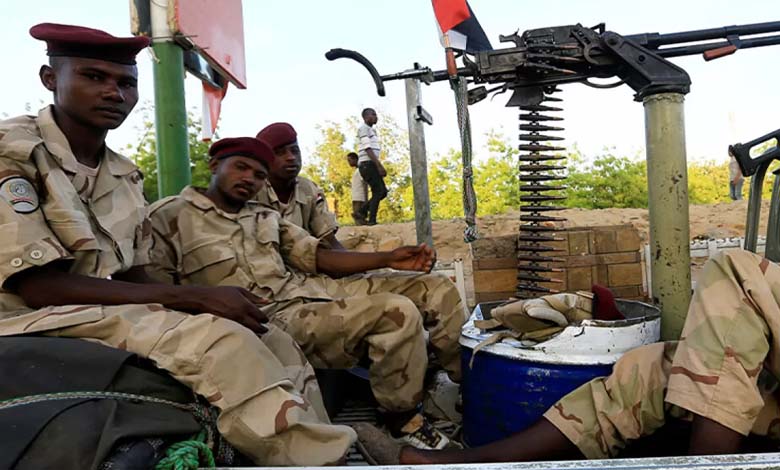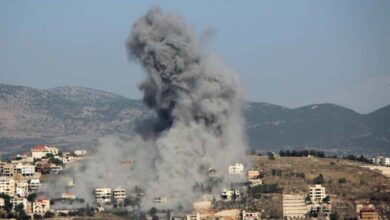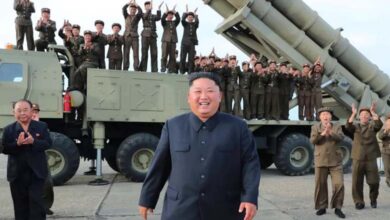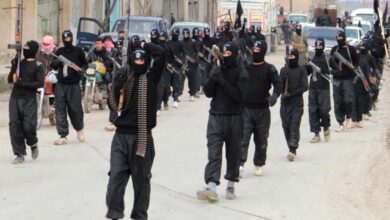Demands for the Dissolution of the Sudanese Army and Pursuit of the Muslim Brotherhood

Recently, there have been widespread calls to dissolve the Sudanese army, as the military institution, under the supervision of the Muslim Brotherhood, has become a tool for dismantling the Sudanese state, torturing its people, and creating the largest gap for malicious foreign interventions. It has become the most significant haven for treason, national betrayal, and the theft of economic resources.
-
Weapon supplies to the Sudanese army continue from abroad
-
External Arms Flow to the Sudanese Army: Escalation of Conflict and Growing Concerns for Civilians
According to an article by Rasha Awad, Editor-in-Chief of the Sudanese newspaper Al-Taghyeer, this is the truth. However, the brazen media machine, specialized in lying, relentless in misleading and distorting public awareness, has succeeded in creating parrots who repeat nauseating phrases that collapse under any rational and logical discussion based on evidence. Phrases such as “The Armed Forces are the safeguard of the nation!” and “The collapse of the army means the collapse of the state!” They argue that maintaining state institutions requires standing behind the army, despite the fact that the army itself is not standing, so how can we stand behind it? It is in a state of constant retreat from battlefields, reliant on the militias of the kizan (the Muslim Brotherhood) and armed movements. Every day, new militias are born from the so-called “War of Dignity.”
-
The Flow of Weapons to the Sudanese Army from Foreign Sources… What Is Happening?
-
“New Iranian Support”: Plane Loaded with Weapons Arrives for Sudanese Army
Rasha Awad further mentioned that the only city that has withstood the Rapid Support Forces for a long time is El Fasher. However, it endured because the battle was faced by the forces of Minni Minnawi and Jibril, who gathered their troops based on tribal affiliations. The security apparatus mastered ethnic incitement, turning the fight into an existential battle between the Zaghawa and the Arabs, which warns of potential ethnic massacres. Indicators suggest that El Fasher may eventually fall into the hands of the Rapid Support Forces, especially after the public fallout between Minnawi and the Port Sudan authorities over $300 million that was supposed to be allocated to the armed movements participating in the “War of Dignity,” but has yet to be disbursed.
-
The Muslim Brotherhood and the Sudanese Army: A History of Rumor-Mongering
-
Have al-Burhan’s supporters lost faith in the Sudanese Army?
In her article, she added: “This Sudanese army is neither national nor professional. If our state had real founding fathers, the first decision made by the independence government on January 1, 1956, would have been to dissolve this army, designed to guard the colonial authority and oppress the people, and begin building an independent Sudanese army with specifications aligned with the direction of a truly independent national state.”
The Editor-in-Chief of Al-Taghyeer continued: “I am certain that dissolving the Sudanese army now is not feasible, as there is an international and regional will that will not allow it. However, I see no logic in continuing to sustain illusions about this army in the minds of Sudanese citizens. This army should be viewed as a crisis-ridden institution and one of the key roots of the national crisis since independence.
-
Iranian delegation provides advanced military training to Sudanese Army: A controversial security cooperation
-
Sudanese Army Commits Massacre by Bombing Popular Market, Killing Dozens of Civilians
This war cannot be used as a political tool to cement the army’s guardianship over the Sudanese state, which in turn extends the guardianship of the so-called Islamic movement, criminal in reality, that ignited this war with the illusion of reclaiming absolute power over Sudan through this army, which, throughout the Islamist era, has turned into nothing more than a Trojan horse hiding the kizan within.”
In a related matter, a woman named Halima Siddiq Mohammed Nour accused Sudanese army leader Abdel Fattah al-Burhan of raping her when she was 16 years old in the city of Zalingei in central Darfur.
-
Dozens of Civilians, Including Children, Killed by Sudanese Army Airstrike on Qandahar Market
-
Armed Forces and Militant Movements Supporting the Sudanese Army Sign Transitional Document
In a video circulating on social media, the woman said the incident occurred on March 5, 2005, when Abdel Fattah al-Burhan was the intelligence chief in Zalingei, according to the news website Al-Rakoba.
In the video, she recounted that at the time she was a student at Umm Al-Qura School in the Karank neighborhood of Zalingei. During a vacation, she decided to work with her aunt in a restaurant, which al-Burhan frequented during his time in central Darfur.
-
Will the Sudanese Army and the Muslim Brotherhood Succeed in Igniting a Civil War in Darfur?
-
Payback: Sudanese Army Mobilizes Against the Muslim Brotherhood
The woman said in the video that at the time, she was studying at the “Umm Al-Qura” school located in the Al-Krank neighborhood in Zalingei. During the school break, she decided to work with her aunt in a restaurant, and al-Burhan was a regular customer at the restaurant during his stay in Central Darfur.
She added that al-Burhan asked her aunt if the girl could go with him to his home to wash his clothes. On her first visit, he gave her some money for her work, but on the second occasion, he assaulted her and raped her under threat. When she told her aunt, who noticed signs of exhaustion on her, her aunt became angry and confronted al-Burhan about what he had done. In response, al-Burhan sent his men one day to lure her aunt, and they brought her back as a lifeless body, throwing her in front of the house.
-
Has a Leader of the Sudanese Army Awoken? Khabbashi’s Statements Against the Muslim Brotherhood Ignite Social Media
-
Under Islamist sponsorship… The Sudanese Army seeks illusory victories
The woman confirmed that al-Burhan and his men were also looking for her, but she managed to escape to the Sarf Omra area in northern Darfur, where she lived far away from al-Burhan and his men.
Activists on social media have called on human rights organizations to listen to the story of Halima Siddiq Mohammed Noor and help her obtain justice after the leader of the Sudanese army destroyed her life in the prime of her youth.
-
Shocking Videos on the Atrocities of War and the Sudanese Army’s Responsibility
-
The Sudanese Army Targets Civilians












